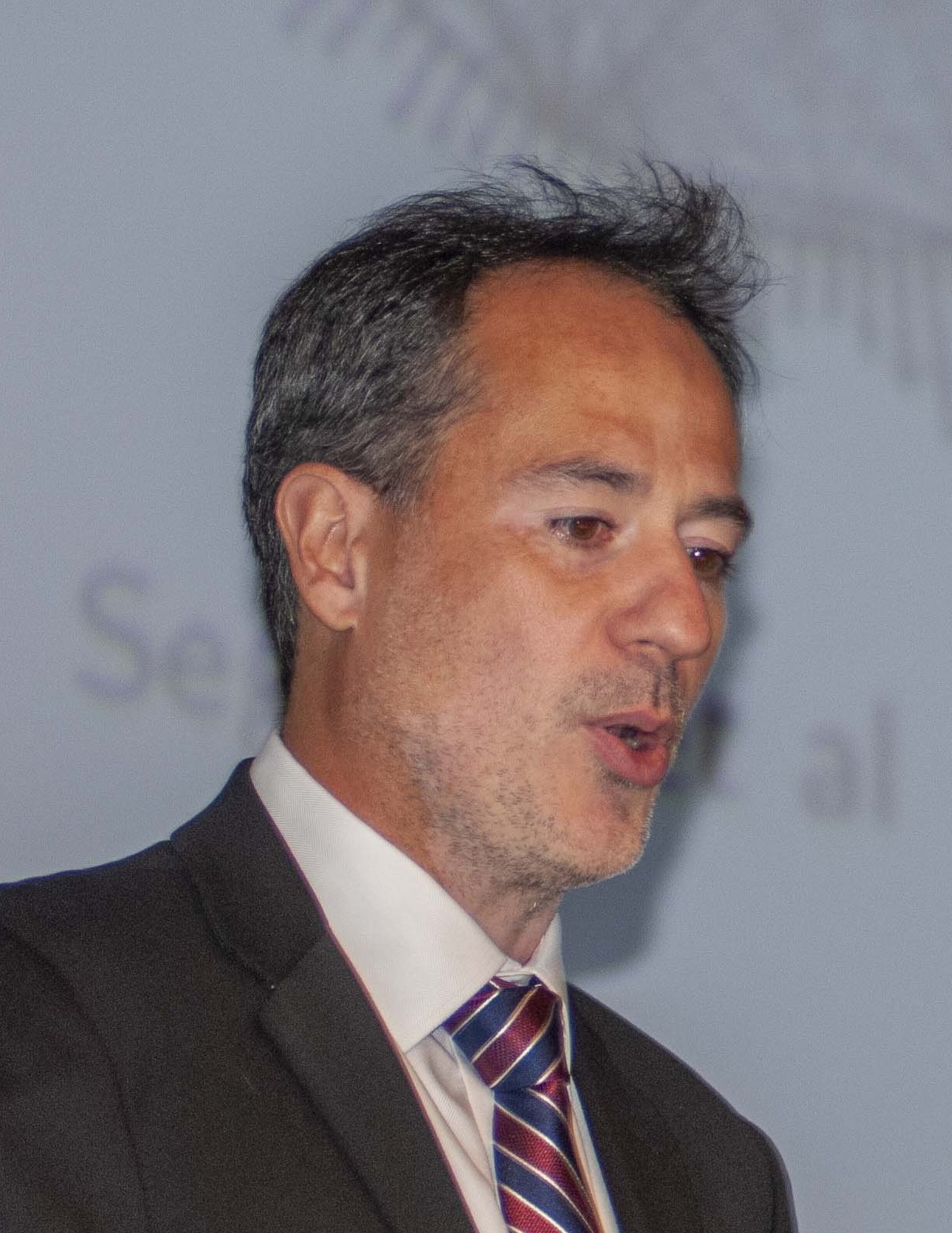Learning with Constraints
Professor Alejandro Ribeiro, University of Pennsylvania
Sunday Oct. 26, 5:15pm in the Chapel
You can view the plenary talk from three different perspectives. All of the views have been synchronized in time so that you can also watch multiple views at the same time.
The plenary talk slides are available here.
You can also visit our YouTube channel for access to all recent plenaries.
Learning with constraints (main camera view)
Learning with constraints (computer screen view).
Learning with constraints (combined view)
Abstract: Although most artificial intelligence (AI) systems are designed to minimize losses or maximize rewards, the standard practice of systems design is centered on the specification and satisfaction of requirements. Ignoring requirements results in AI systems that can be brittle, biased, unsafe, or deceptive. The evident solution is to make constraints an integral part of AI systems. In this talk we discuss the incorporation of constraints in supervised, unsupervised, and generative AI systems. Central to our discussion is the investigation of duality properties in these various domains. Duality is the key to unlock statistical generalization results and to develop constrained learning algorithms. We will also introduce innovative uses of constraints in AI systems including everywhere learning — the imposition of constraints on individual samples — and resilient learning — a mechanism for automating constraint specification.
 Speaker Biography:
Speaker Biography:
Alejandro Ribeiro received the B.Sc. degree in electrical engineering from the Universidad de la República Oriental del Uruguay in 1998 and the M.Sc. and Ph.D. degrees in electrical engineering from the Department of Electrical and Computer Engineering at the University of Minnesota in 2005 and 2007. He joined the University of Pennsylvania (Penn) in 2008 where he is currently the Solomon & Sylvia G. Charp Professor of Electrical Engineering. His research is on the foundations of artificial intelligence (AI) and on the use of AI in network systems. His group has made seminal contributions to constrained learning, graph signal processing, and graph neural networks (GNNs). They have pioneered the use of GNNs in wireless communications, distributed collaborative robotic systems, and power distribution grids. Papers coauthored by Dr. Ribeiro received the 2024 and 2022 IEEE Signal Processing Society Best Paper Awards, the 2022 IEEE Brain Initiative Student Paper Award, the 2021 Cambridge Ring Publication of the Year Award, the 2020 IEEE Signal Processing Society Young Author Best Paper Award, the 2014 O. Hugo Schuck best paper award, and paper awards at CAMSAP 2023, EUSIPCO 2021, ICASSP 2020, EUSIPCO 2019, CDC 2017, SSP 2016, SAM 2016, Asilomar SSC 2015, ACC 2013, ICASSP 2006, and ICASSP 2005. His teaching has been recognized with the 2017 Lindback award for distinguished teaching and the 2012 S. Reid Warren, Jr. Award presented by Penn’s undergraduate student body for outstanding teaching. Dr. Ribeiro received an Outstanding Researcher Award from Intel University Research Programs in 2019. He is a Penn Fellow class of 2015 and a Fulbright scholar class of 2003. He is husband to Gabriela and father to Miranda, Guillermo, and Ariel.